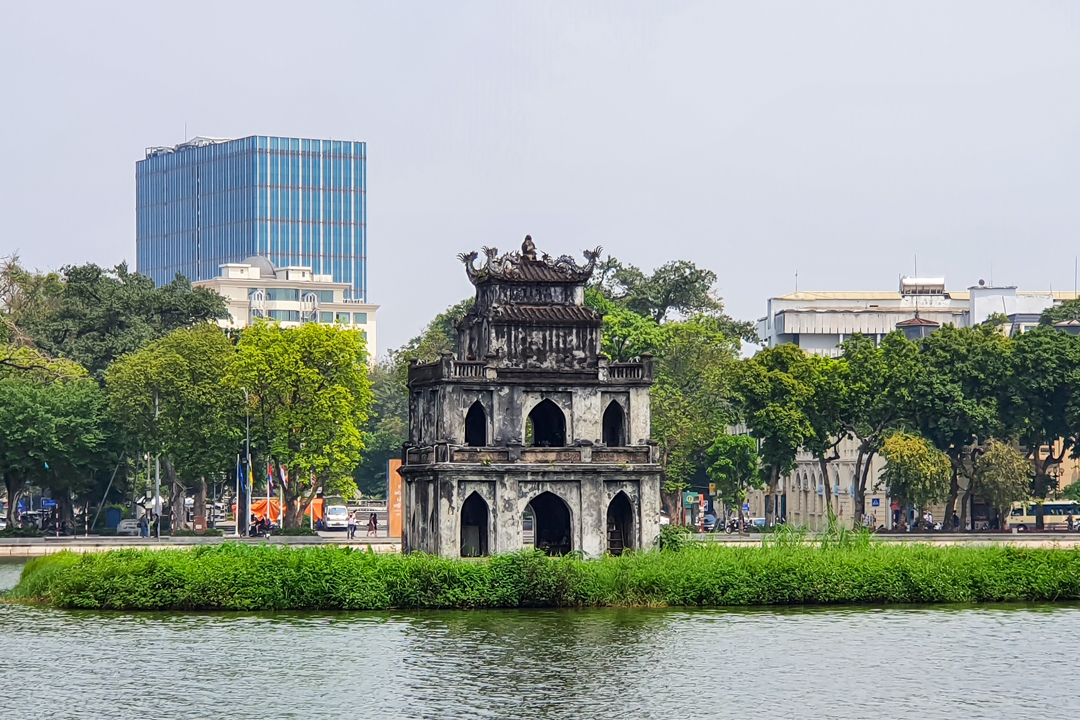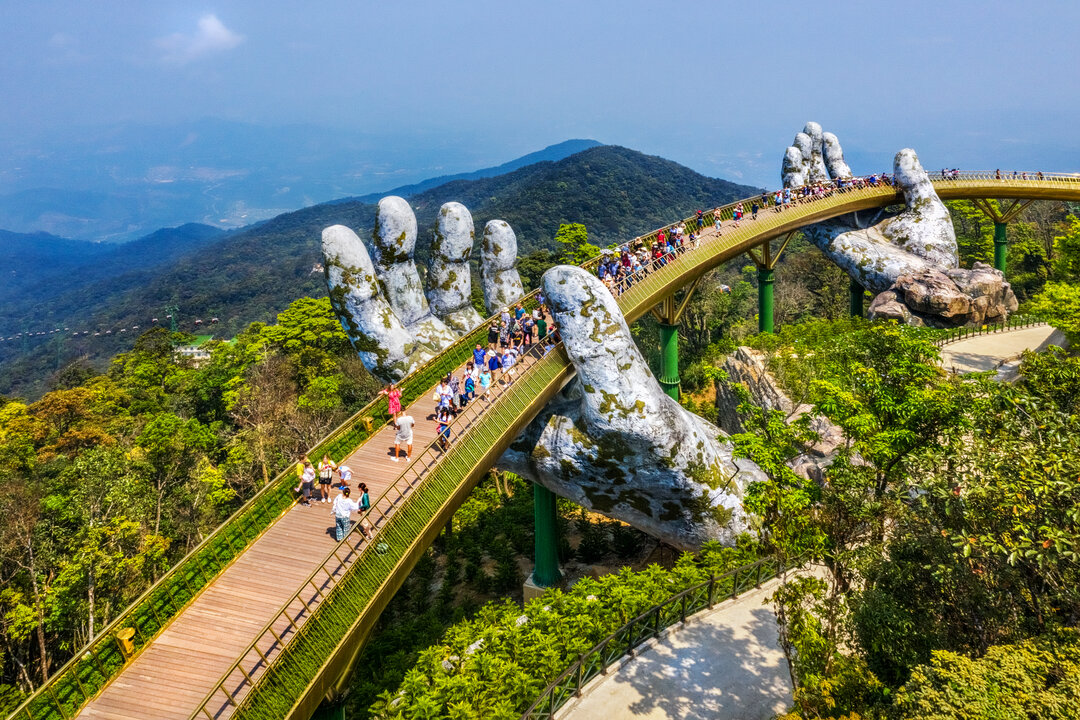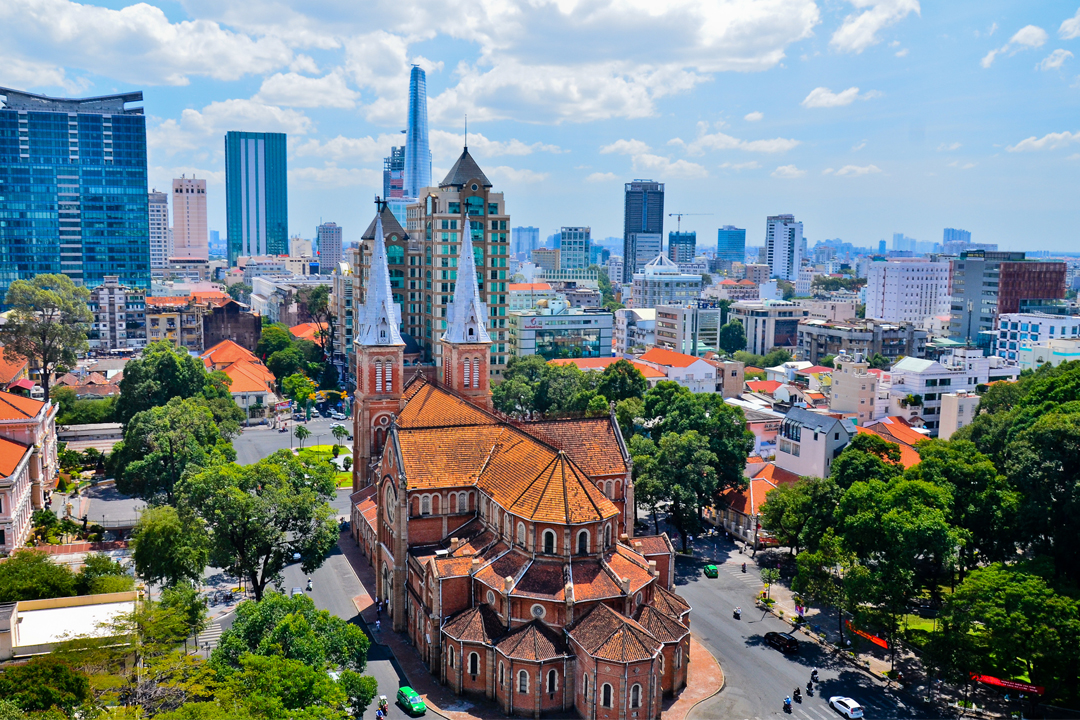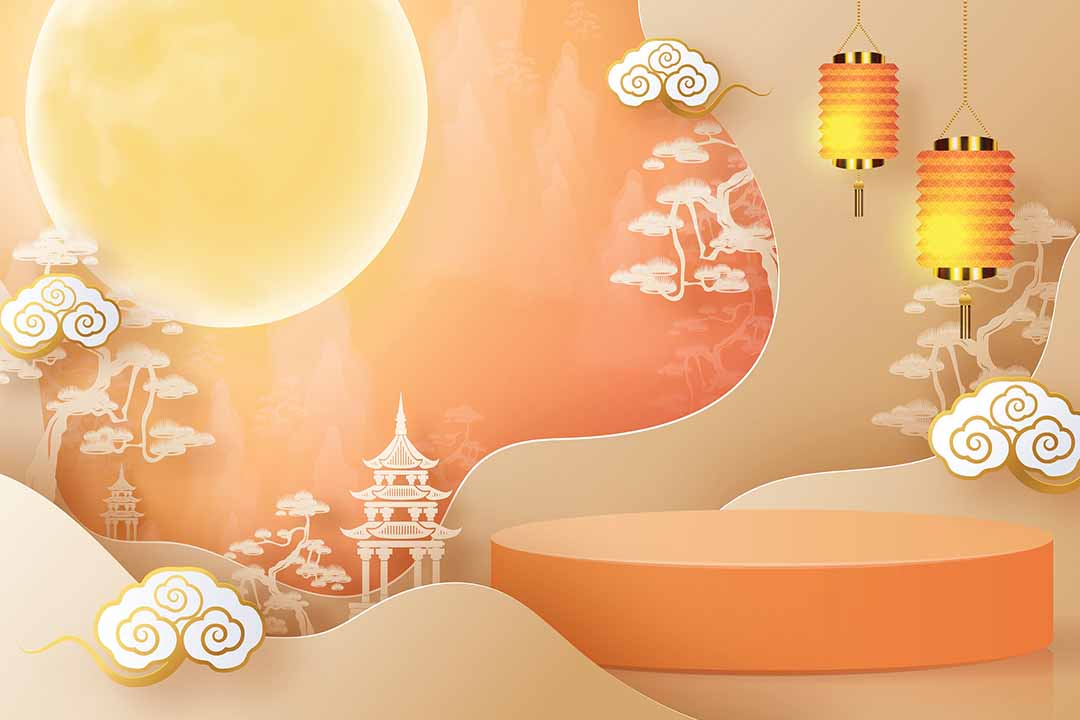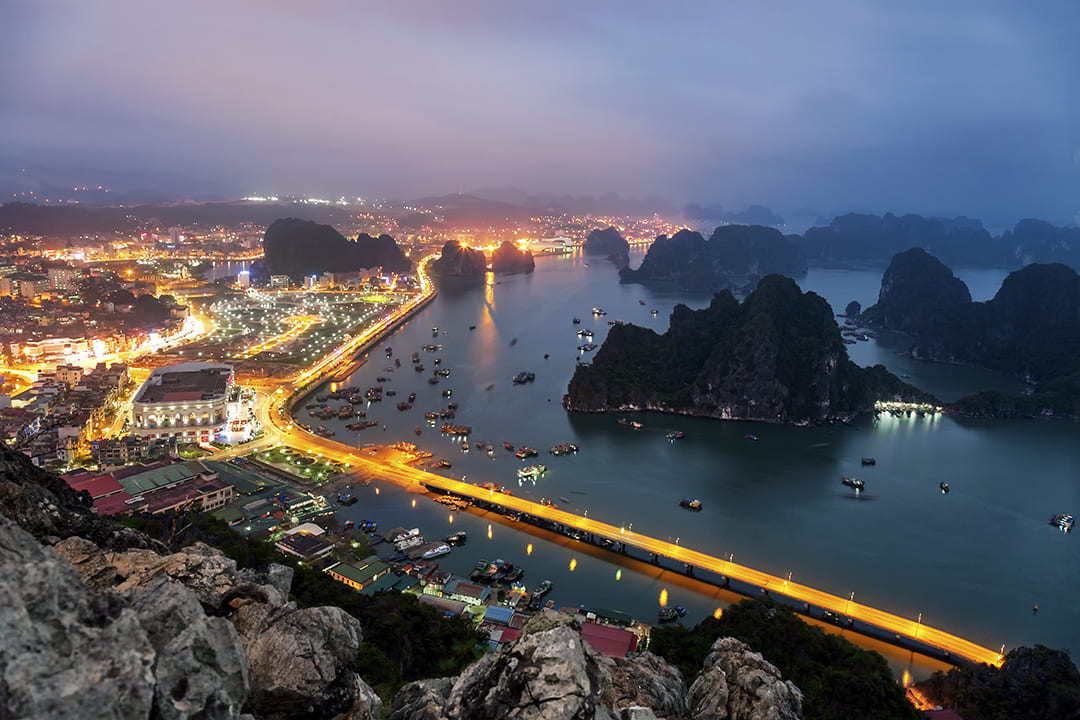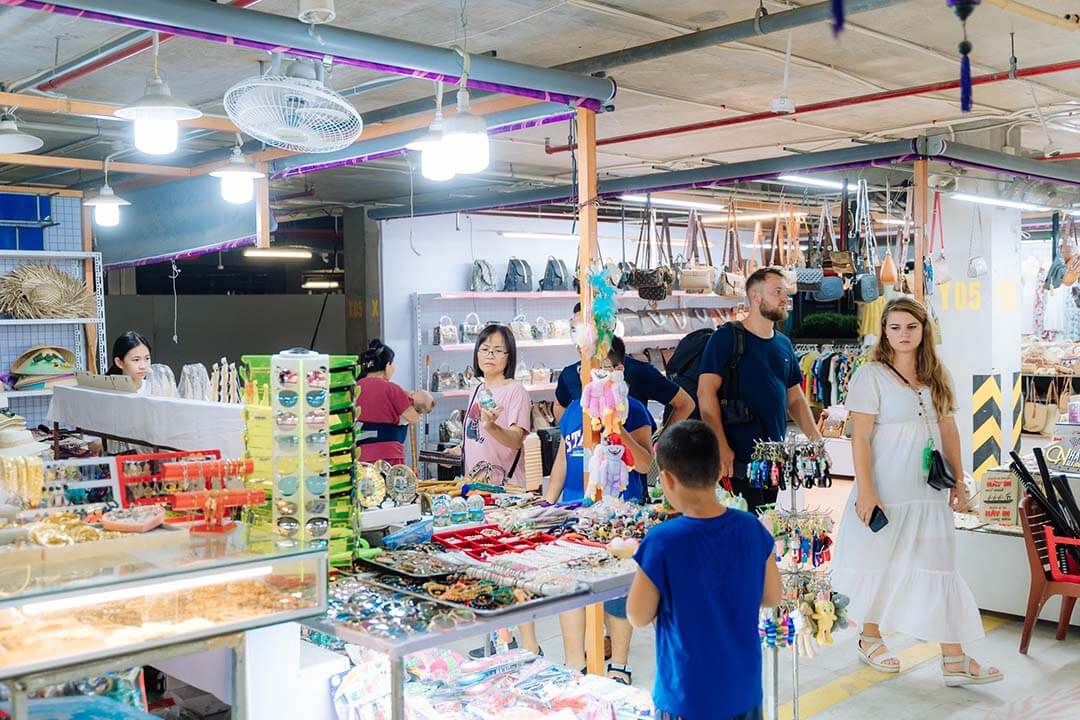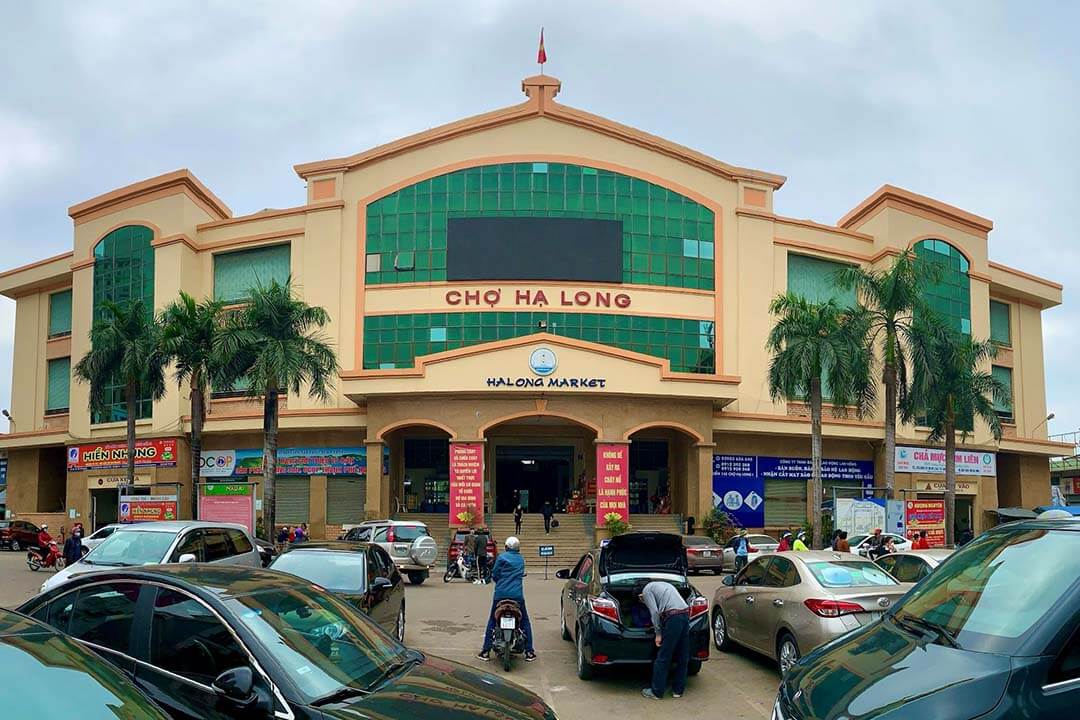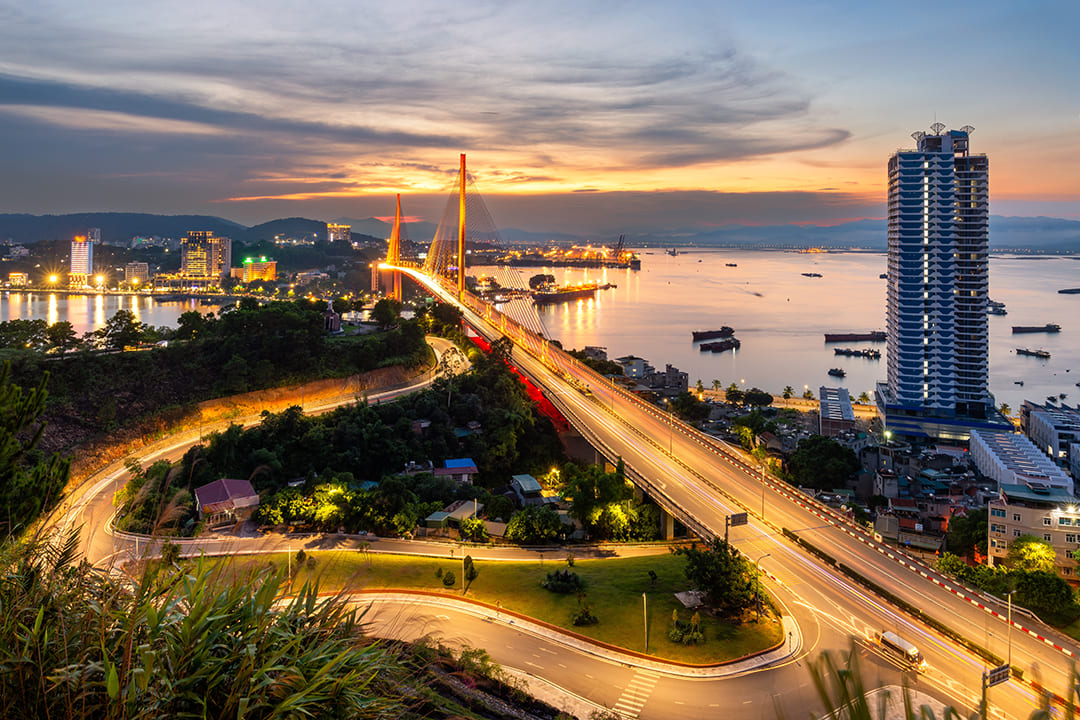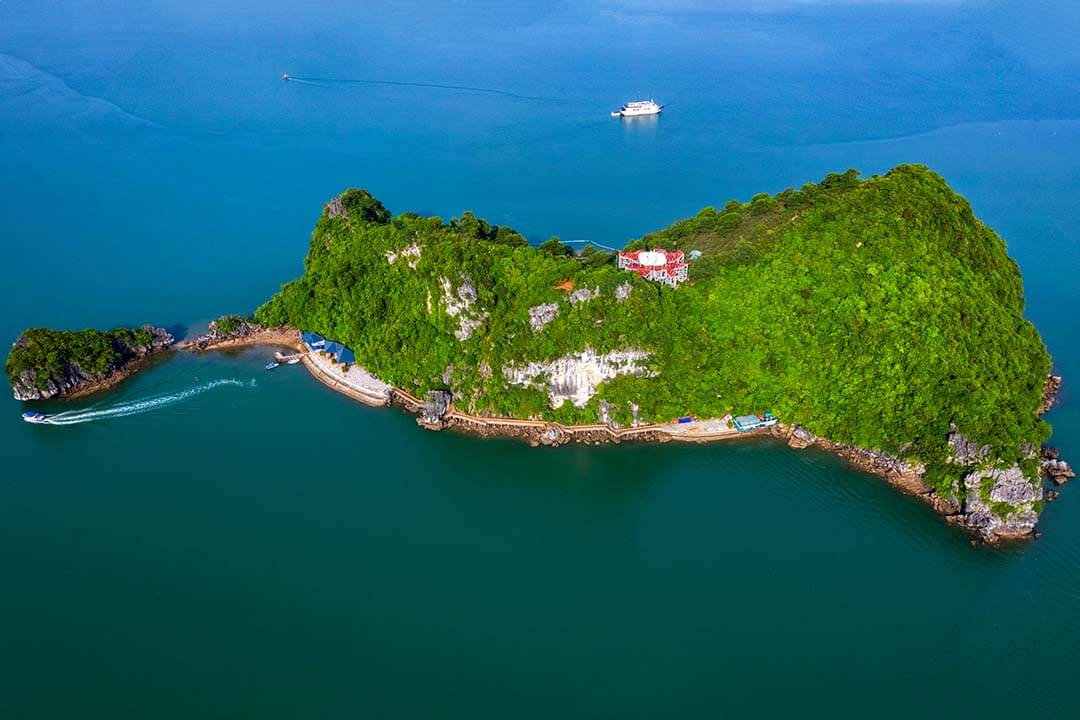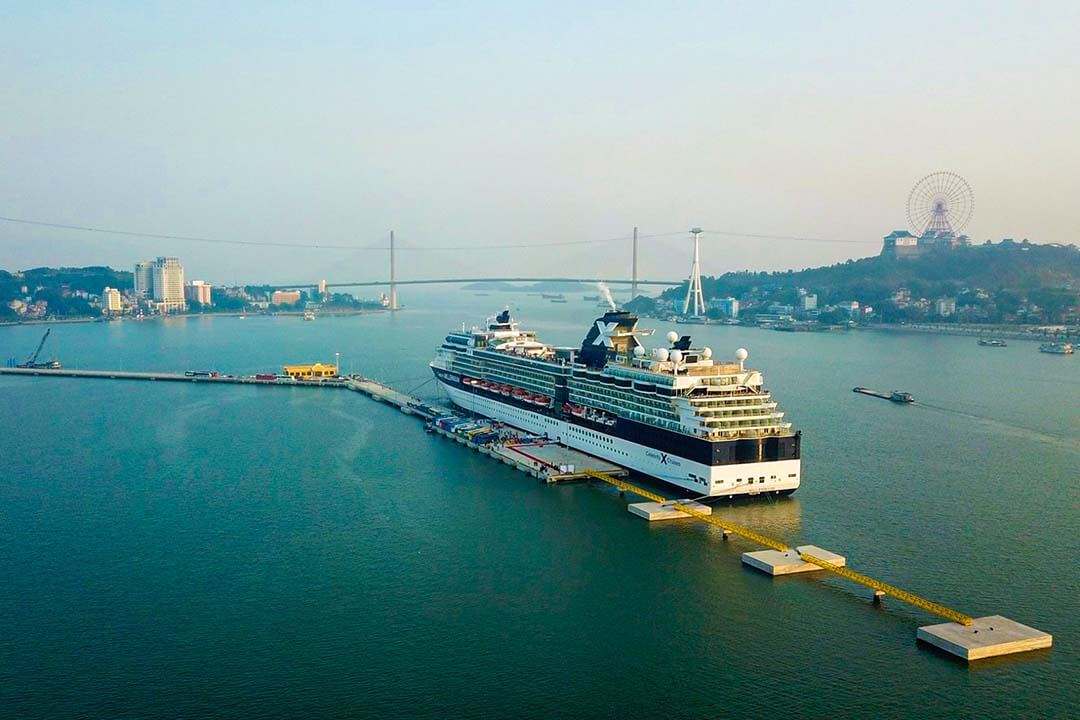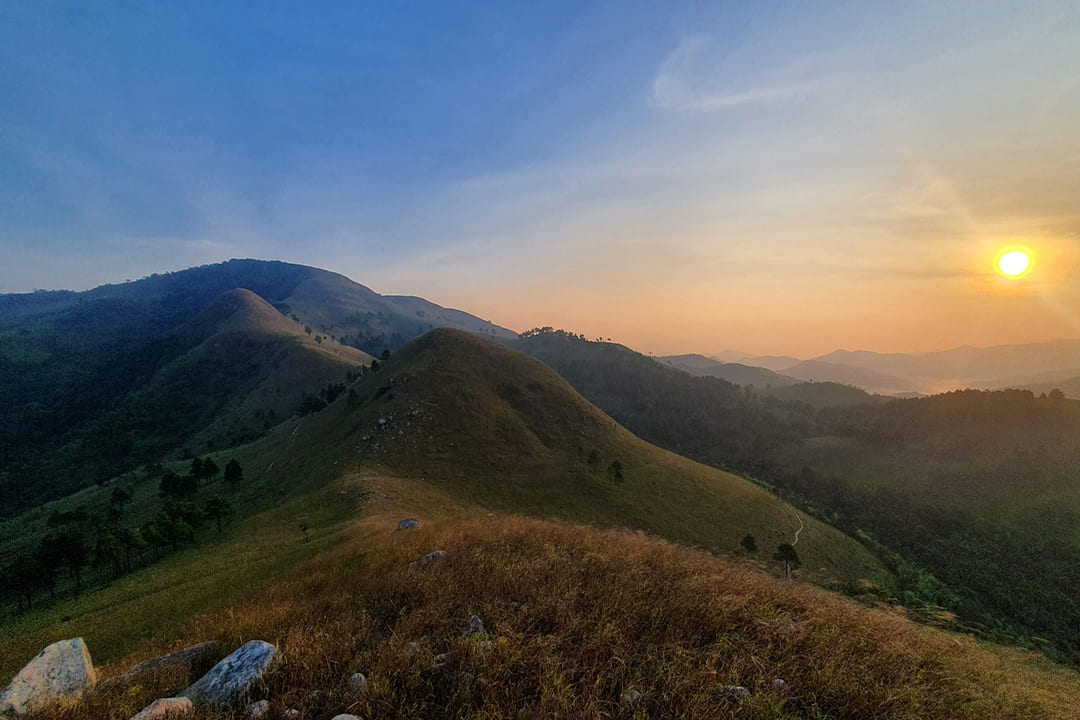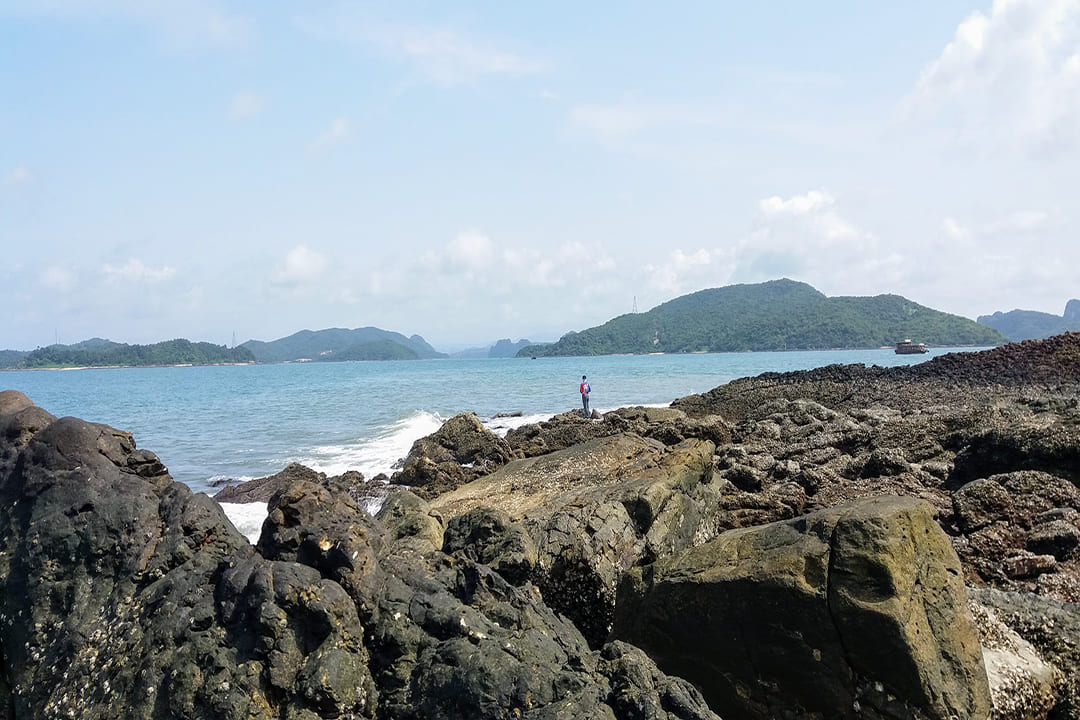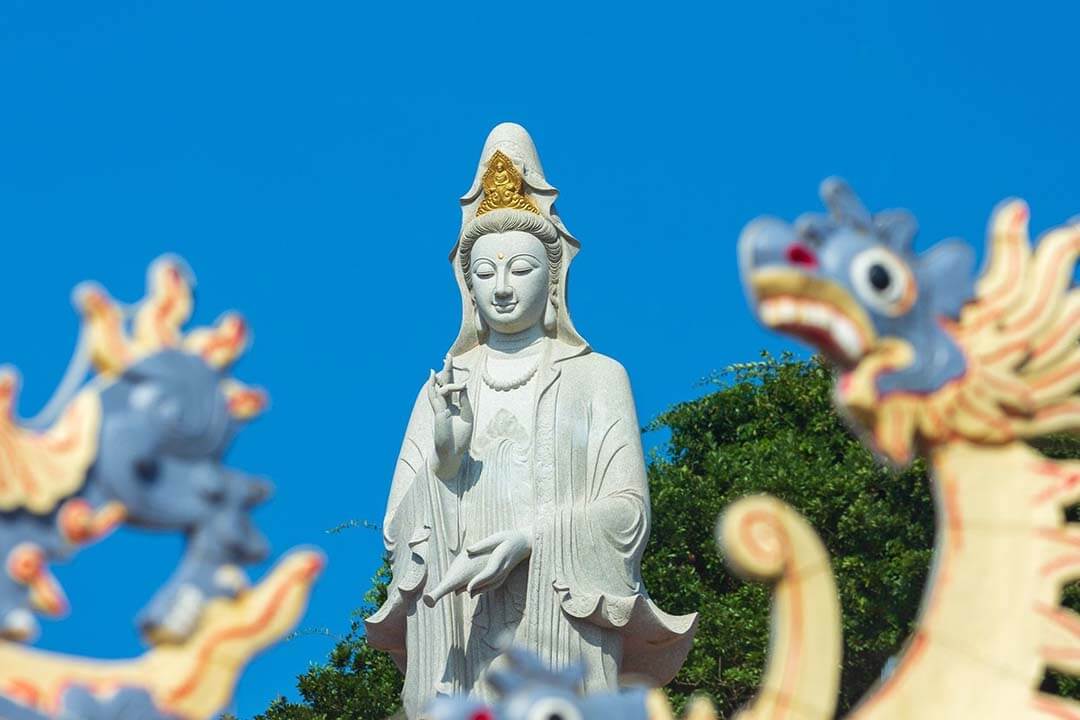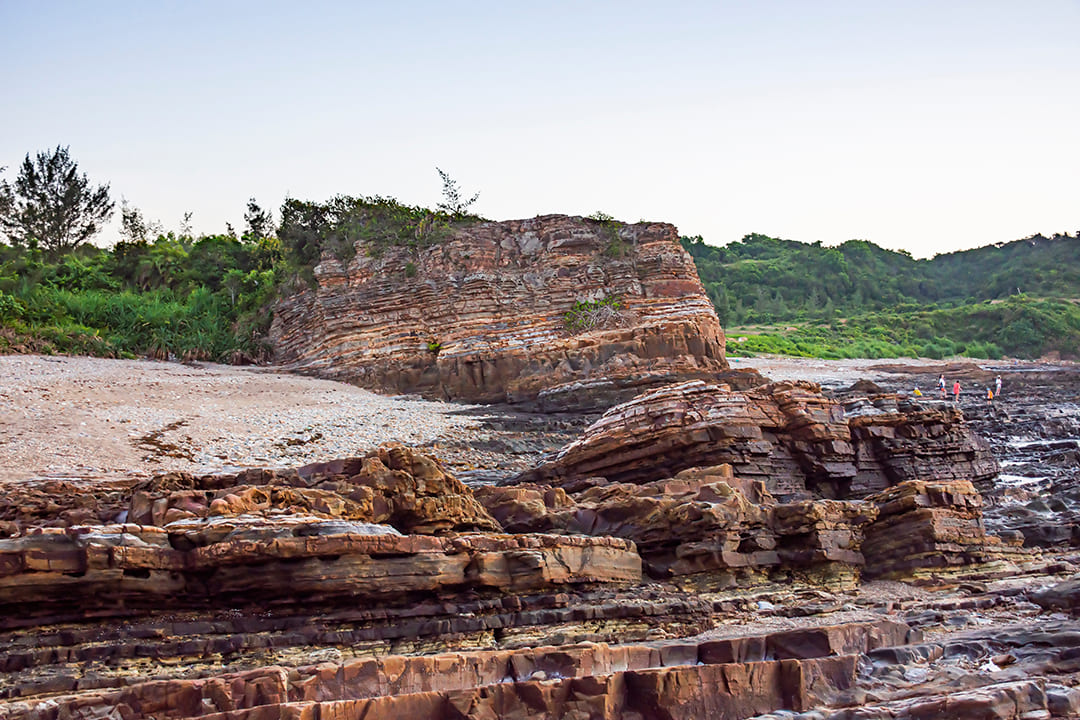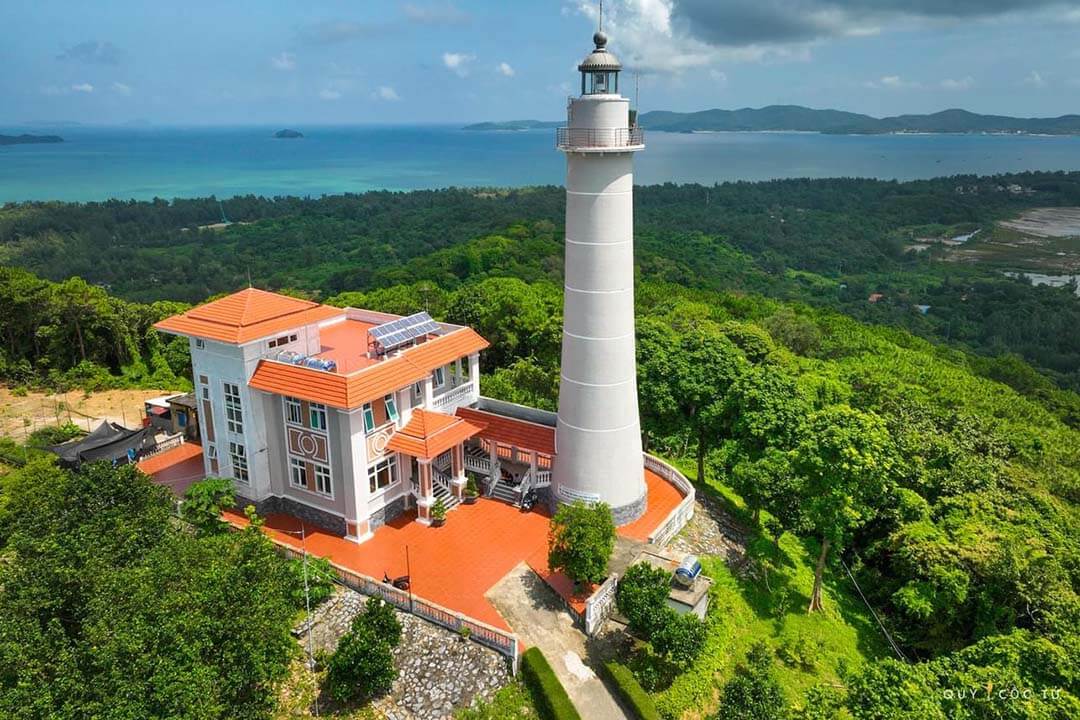Dec - 06 - 2024
Quang Ninh Museum is a place dedicated to preserving and honoring the heritage, history, and natural beauty of Quang Ninh Province. The museum is located on Tran Quoc Nghien Street in Hong Gai Ward, Ha Long City. It offers a stunning view with the sea as its backdrop. The Quang Ninh Library is located right next to the museum, and the two structures are seamlessly connected by unique bridges, creating a harmonious architectural ensemble.
The museum was built to preserve and celebrate the region's rich history. It stands as a symbol of significant local heritage, including Ha Long Bay, the coal mining industry, and the unique cultural identity of the area. Known as the “Black Pearl of Quang Ninh”, the museum captivates visitors with its striking design featuring three interconnected architectural blocks, each telling its own story.
In this article, GTrip invites you to explore the museum on an exciting journey. We’ll guide you through the marvels of its architecture, uncover the meanings behind its unique structure, and take you through each space, floor, and activity you won’t want to miss. Let’s dive into the journey of discovering Quang Ninh Museum - there’s so much waiting for you to explore!
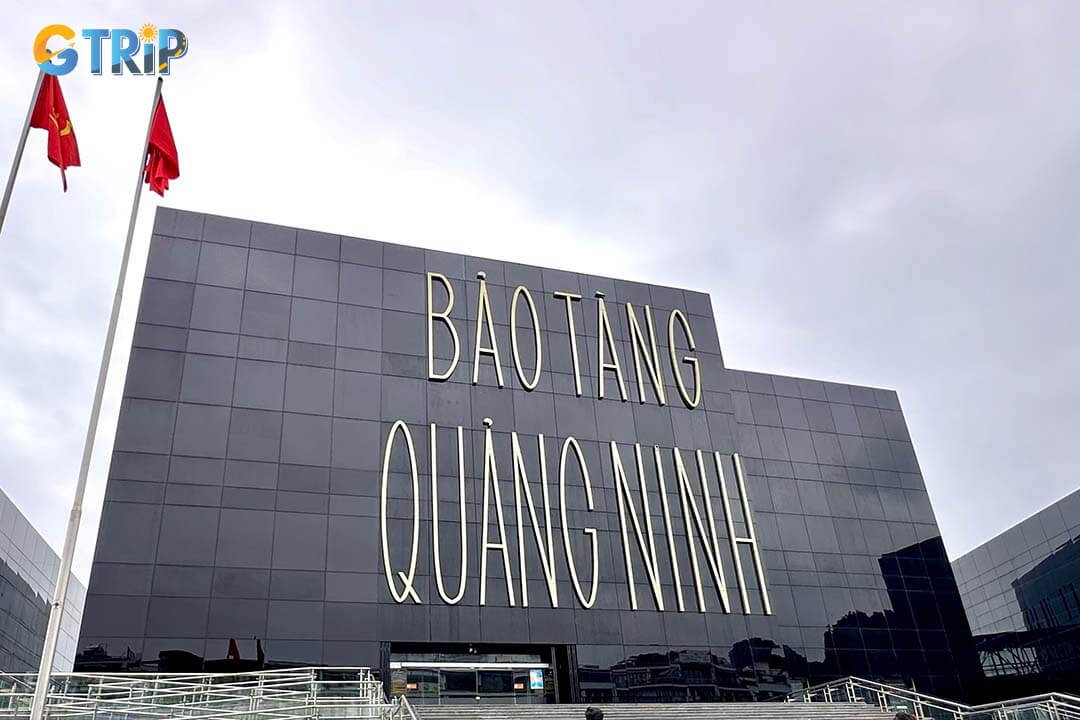
The museum is dedicated to preserving and celebrating the region's heritage, history, and natural beauty
Architecture of Quang Ninh Museum and entrance fee
The museum is an architectural masterpiece that reflects modern design while seamlessly integrating cultural symbolism. The museum was designed by the renowned Spanish architect Salvador Pérez Arroyo. Its black glass facade captivates visitors with its striking appearance, mirroring the shimmering waters of Ha Long Bay. This facade symbolizes Quang Ninh's rich coal industry, emphasizing the province's identity as Vietnam’s "coal capital".
The museum spans 3 interconnected blocks, each symbolizing distinct themes: natural history, cultural history, and modern industrial achievements. The spacious galleries welcome visitors with minimalist designs emphasizing the exhibits, including fossils, traditional artifacts, and interactive displays. Dramatic lighting and open spaces enhance the immersive experience, creating a grand yet inviting atmosphere.
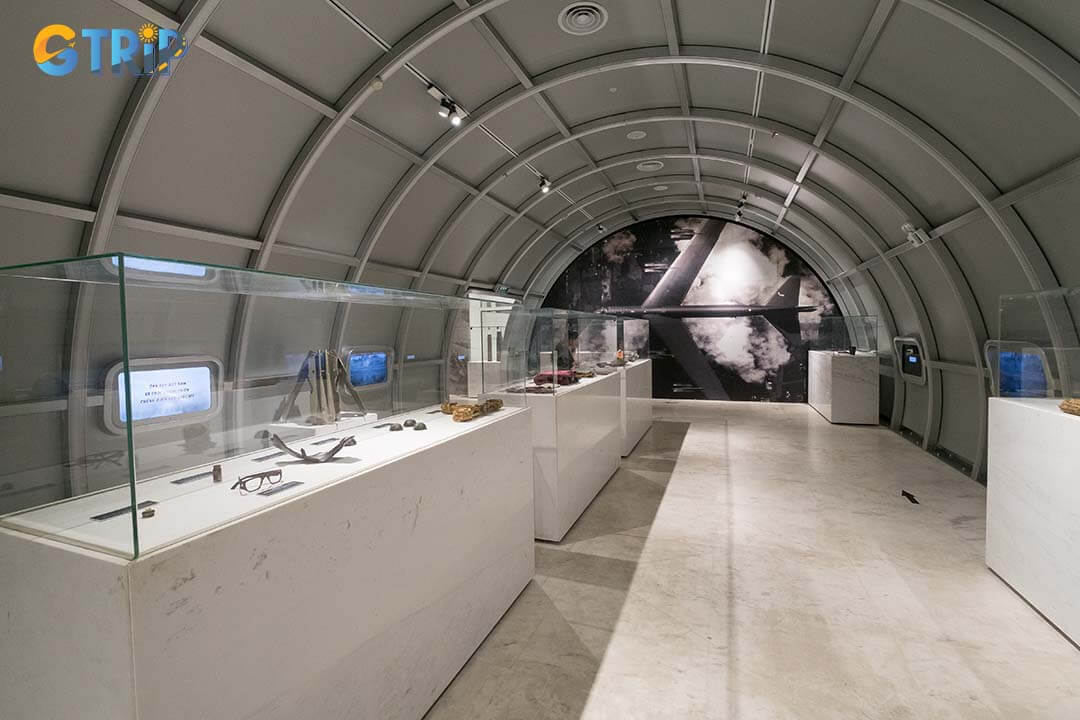
Architecture of Quang Ninh Museum
Entrance fee and operational hours
The main entrance allows access to the museum daily, with operating hours divided into two sessions:
- Morning: 8:00 a.m. - 12:00 p.m.
- Afternoon: 1:00 p.m. - 5:00 p.m.
Ticket prices are affordable, welcoming all types of visitors:
- Adults: 40,000 VND/person
- Students: 20,000 VND/person (must present their card)
- Children: 10,000 VND/person
This thoughtfully designed museum emphasizes both aesthetic appeal and cultural significance, making it a must-visit destination for those exploring Quang Ninh Province.
Relationship between Quang Ninh Museum and Quang Ninh Library
The museum and the library form a unified cultural hub, connecting heritage preservation with knowledge exchange. These two structures share a cohesive architectural style and aim to promote education, cultural awareness, and local identity.
- Shared architecture and design: Both buildings are linked by modern, sustainable architecture. Their cohesive design enhances visual harmony, symbolizing the connection between history and learning.
- Complementary functions: While the museum focuses on showcasing Quang Ninh’s natural and cultural history, the library offers a wealth of resources, including books, digital materials, and study spaces for both locals and visitors. Together, they create a cultural space where heritage and learning converge.
- Community and educational impact: This dual-purpose complex fosters cultural pride and intellectual development, becoming a prominent destination for both residents and tourists. It not only preserves local history but also encourages lifelong learning.
This interconnected relationship enhances the visitor experience, allowing them to easily transition from exploring Quang Ninh’s historical heritage to engaging in meaningful educational and learning activities.
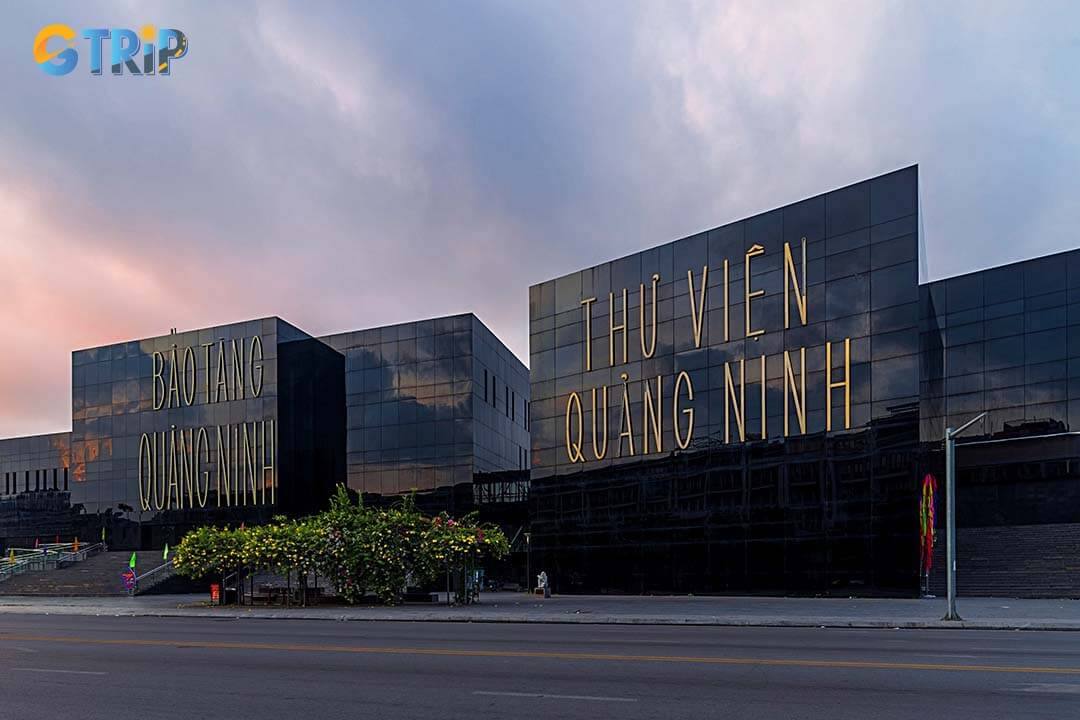
Quang Ninh Museum, near Quang Ninh Library
Explore 3 main exhibition areas in the museum
The museum showcases 3 sections highlighting the region's natural, cultural, and industrial history. It offers an immersive experience of its heritage and development.
1. Natural history exhibition: Floor 1
The museum's first floor is an exhibition space with the theme of the sea and nature, highlighted by four column-shaped display tubes representing the rocky mountains of Ha Long. Each "mountain" tube opens up to a space with themes on geology, the sea, endemic flora and fauna, and insects in Quang Ninh. Additionally, lighting effects, LED screens, and more enhance the marine ecosystem, making visitors feel as if they are immersed in the vast ocean
A standout feature is the life-sized skeleton of a whale, symbolizing Quang Ninh's strong connection to the sea. This section immerses visitors in the environmental significance of the region, emphasizing its rich biodiversity and natural wonders. Additionally, it underscores the province's efforts in environmental conservation and the importance of preserving its unique natural heritage for future generations.
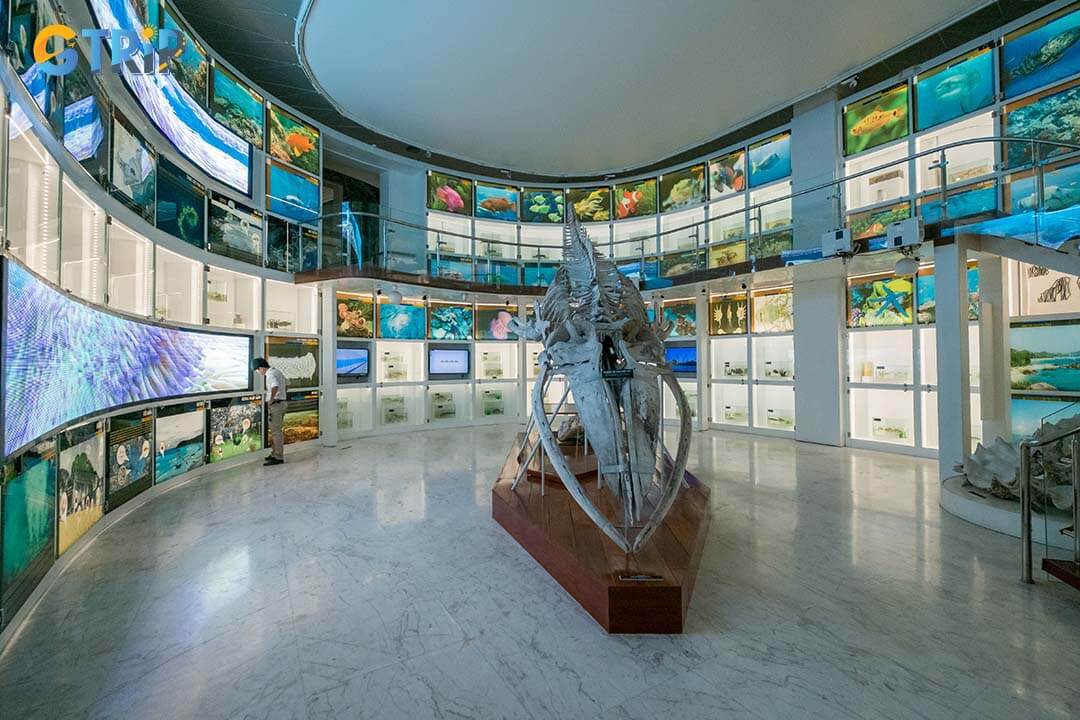
The first-floor area displays biological diversity in Quang Ninh
2. Cultural history exhibition: Floor 2
The second floor features exhibits of models and artifacts with historical value. Here, the changes in the lives of Quang Ninh's people through different periods are vividly and uniquely portrayed. Additionally, this floor offers an opportunity to learn more about Quang Ninh's famous historical sites.
The purpose of this exhibition is to delve into the historical context and cultural identity of Quang Ninh, preserving the traditions and customs that shape the province’s unique culture. You can gain a deeper appreciation for the diverse ethnic groups in Quang Ninh and their vital role in shaping the province’s cultural landscape.
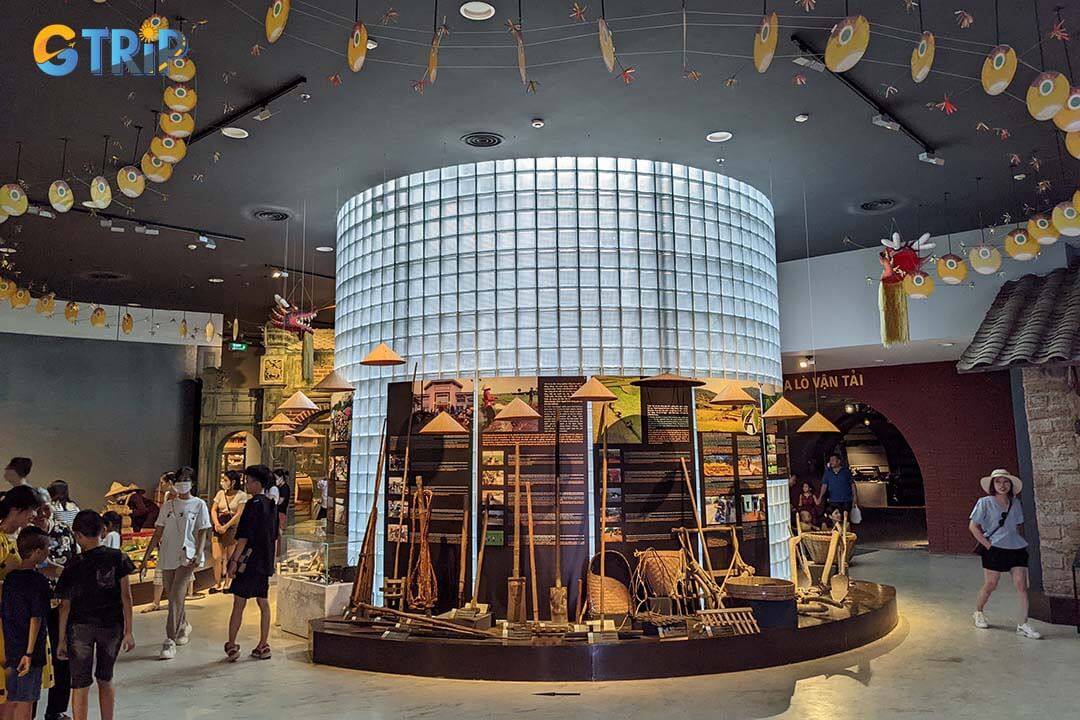
The 2nd-floor area displays the cultural heritage of Quang Ninh
3. Modern industrial and development exhibition: Floor 3
The third floor is an impressive space dedicated to the history and development of Quang Ninh's renowned coal mining industry. Life-sized coal mine models and statues depicting workers' mining methods give you a vivid perspective on this labor-intensive and challenging profession.
The goal is to showcase Quang Ninh's industrial milestones and its growth as a modern economic and coal-mining hub. Additionally, it highlights the province’s innovative spirit, showcasing its progress in modern technology, infrastructure, and economic development over the years.
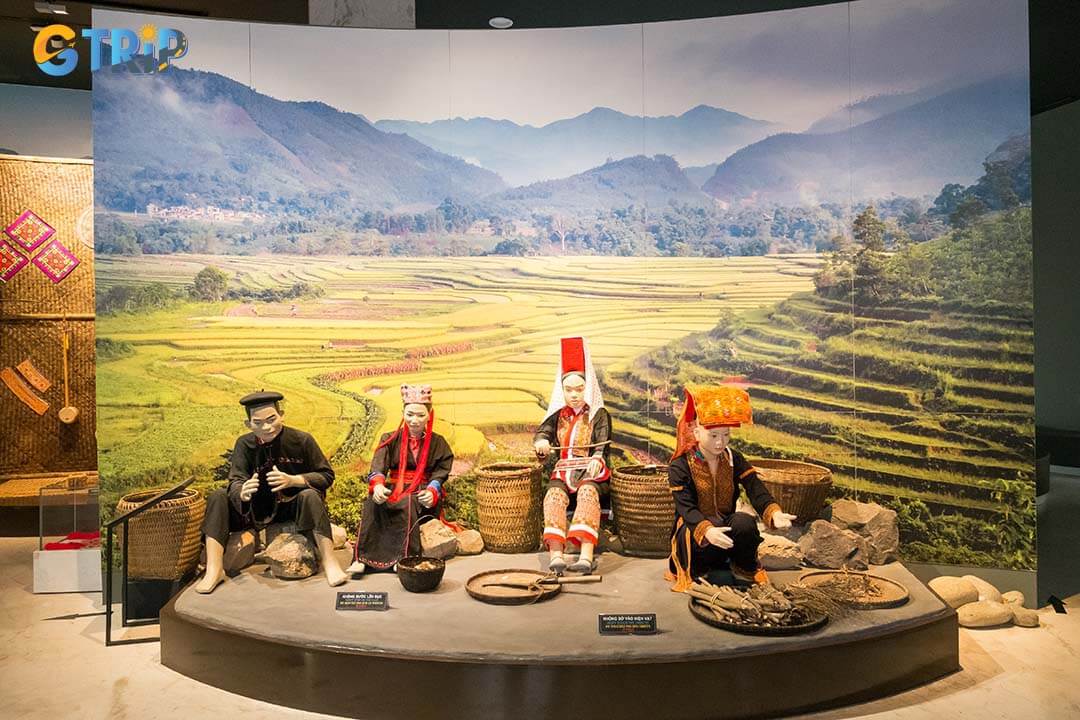
Exhibition area on the 3rd floor
Explore the outdoor area of the museum
The outdoor area of the Quang Ninh Museum is as enchanting as its indoor exhibits. It offers a relaxing space while enjoying the museum’s impressive architecture and beautiful surroundings.
1. Iconic architectural features
The museum’s black glass facade is a standout feature, reflecting the surrounding sky and waters, symbolizing Quang Ninh's coal mining heritage. Its sleek and modern staircase design enhances the building's aesthetics and draws attention to the museum as a prominent architectural landmark. Integrating modern elements into a cultural context creates a functional and visually striking space.
2. Panoramic views of Ha Long Bay
The museum is situated at the waterfront, the museum’s outdoor area offers panoramic views of Ha Long Bay, one of Vietnam's most iconic natural wonders. You can enjoy the sight of limestone karsts rising dramatically from the sea, creating a picturesque and tranquil environment. These breathtaking views provide excellent opportunities for photography and a moment to connect with the region's natural beauty.
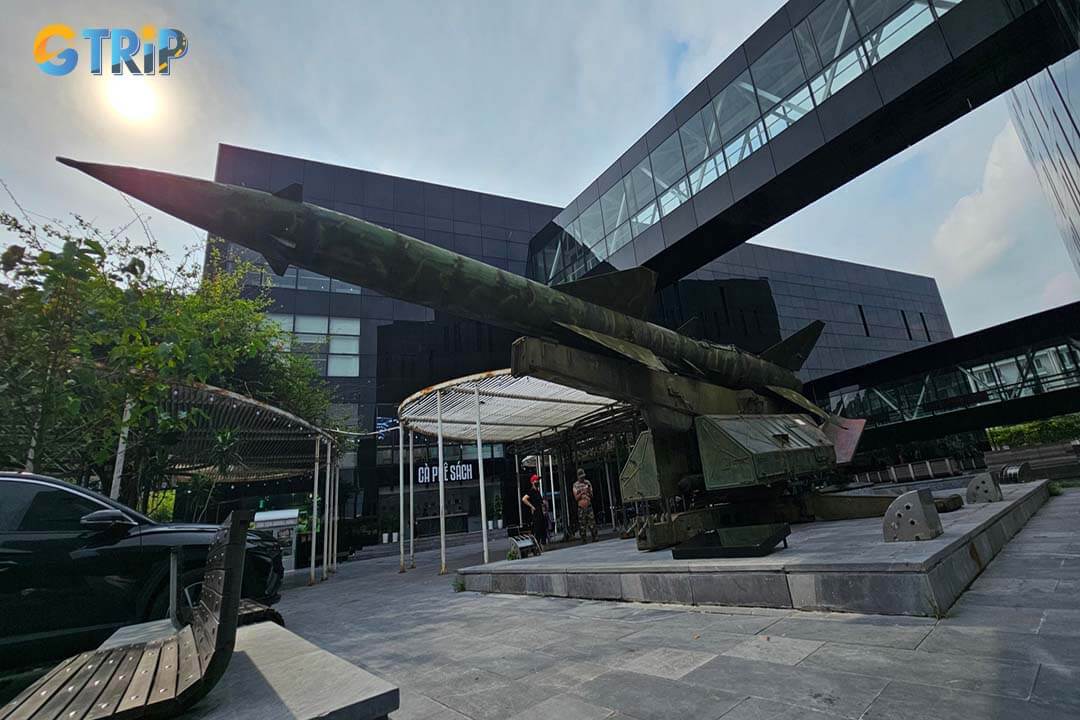
Artifacts in the area outside the museum
3. Art and sculptures
The outdoor area features thoughtfully placed sculptures and installations celebrating Quang Ninh’s local culture and heritage. These modern artworks are seamlessly integrated into the landscape, adding a creative dimension to the outdoor space. They serve as an extension of the museum's indoor narrative, allowing visitors to experience cultural symbolism in an open-air setting.
4. Link to Quang Ninh Library
The museum’s outdoor space connects directly to the neighboring Quang Ninh Library via shared pathways, forming a unified cultural complex. The seamless connection between the two facilities enhances convenience for you. They highlight their unified design and shared goal of promoting education and cultural awareness.
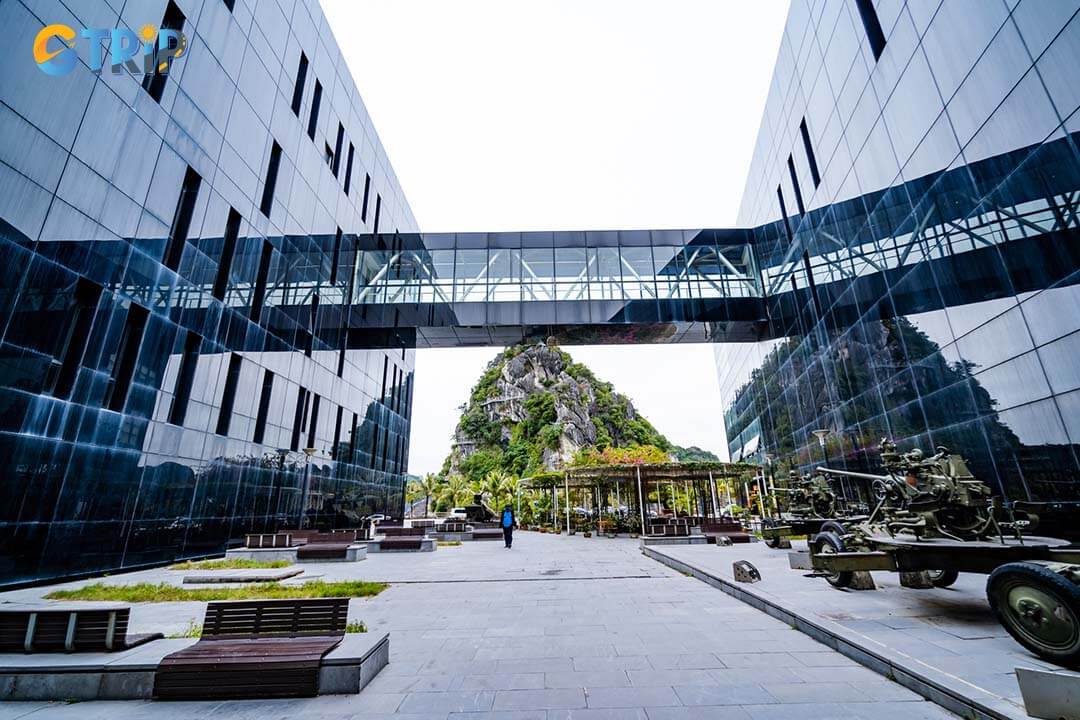
A bridge links the museum and the library
5. Relaxation spots
The outdoor area is equipped with benches, shaded seating, and open spaces, offering visitors a place to relax after exploring the museum. These tranquil spots are positioned to take full advantage of the natural surroundings and provide a peaceful environment for reflection. Whether it’s enjoying the view of Ha Long Bay or resting under the shade, these spaces enhance the overall museum experience.
The best time of day to visit the museum
The ideal time to visit Quang Ninh Museum depends on your preferences for sightseeing, photography, and overall experience. Here’s a breakdown of what to expect during different times of the day:
1. Morning (8:00 AM - 11:00 AM)
One of the key advantages of visiting the museum is its quiet atmosphere, with fewer crowds, which allows for a more peaceful and focused exploration of the exhibitions. The soft natural light filtering through the space enhances the reflective black glass facade. This light creates perfect conditions for capturing photos of the building and its surroundings.
Ideal for: Visitors seeking a calm, relaxed environment or those who wish to begin their day with a cultural experience will find this museum the perfect place to start.
2. Afternoon (1:30 PM - 4:00 PM)
Visiting the museum in the afternoon offers a unique opportunity for photography enthusiasts, as the sunlight creates dynamic reflections on the building’s architecture. This provides excellent angles to capture the museum in its full architectural glory. Additionally, the afternoon is a great option if you plan to explore other attractions in Ha Long City earlier in the day.
Considerations: It’s important to note that the museum may be slightly busier during this time, especially on weekends and public holidays.
Ideal for: Those who prefer to combine sightseeing with photography, taking advantage of the afternoon light to appreciate the museum’s striking design fully.
3. Evening (Special events)
While the museum mainly operates during the day, special evening events and festival nights provide a rare chance to see the building in a new light - literally. The illuminated architecture against the night sky creates a magical atmosphere that’s not to be missed.
The museum’s glowing façade offers a captivating visual experience, perfect for those who appreciate unique architectural beauty. Evening events often include cultural performances or exclusive exhibitions, adding depth and excitement to your visit.
Evening visits are perfect for those seeking a unique and memorable experience. They also cater to attendees of special museum events wanting something truly extraordinary.
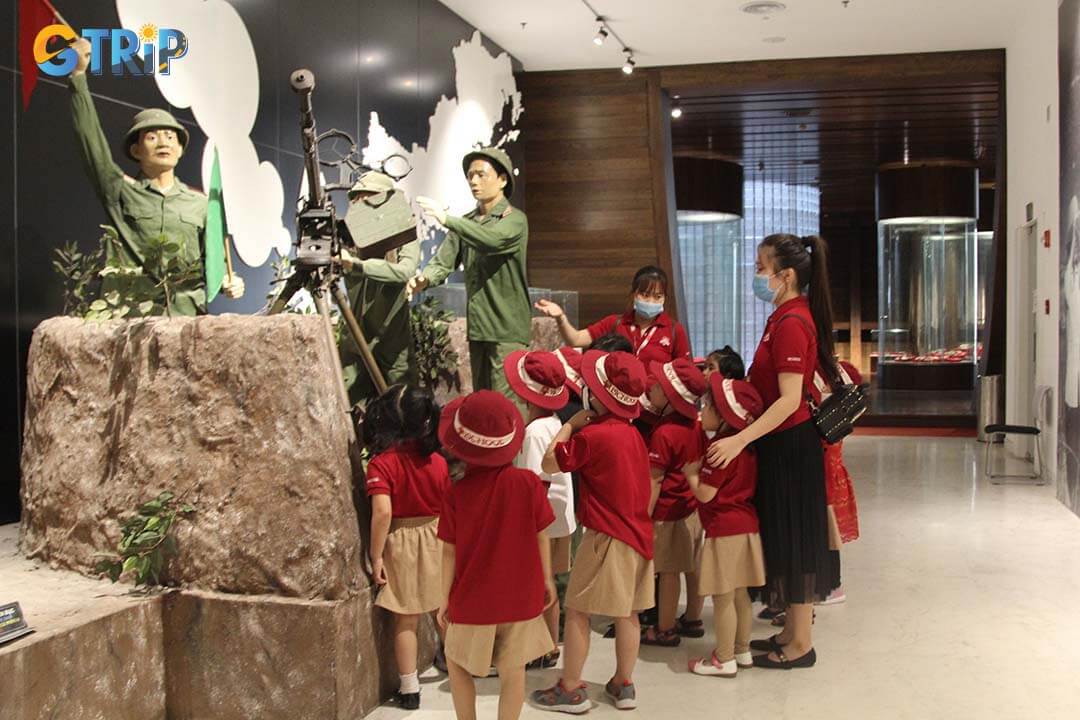
The museum attracts many people to visit, including children
Tips: Avoid peak hours
Late morning (10:30 AM to noon) can be busy with school groups and tours, so plan your visit accordingly for a smoother experience. Arriving earlier or later in the day can help you enjoy the exhibits in a quieter setting.
By considering the time of day and your preferences, you can make the most of your visit to Quang Ninh Museum. If you’re planning a Ha Long tour, be sure to schedule your visit at a time that allows you to enjoy the museum’s cultural and architectural beauty alongside other attractions in the area.

